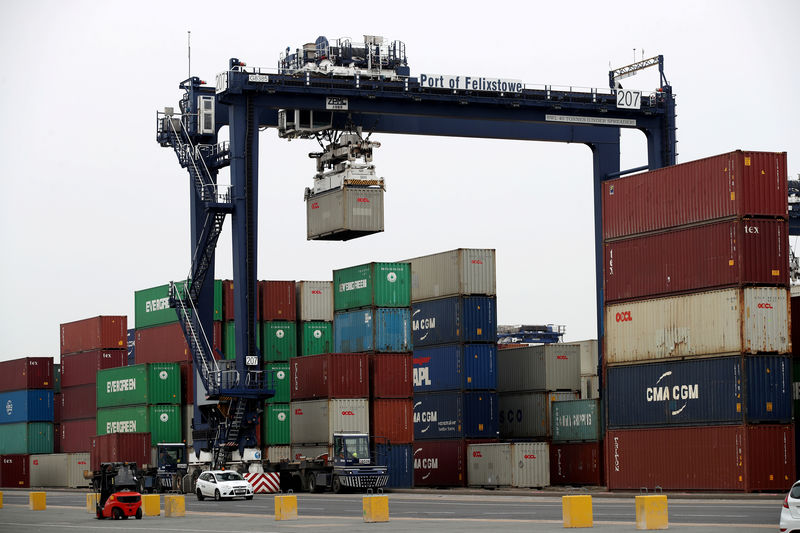LONDON, (Reuters) - Britain's current account deficit with the rest of the world ballooned to its highest since late 2016 in the first three months of this year, though much of the increase was driven by hefty gold imports.
Figures from the Office for National Statistics on Friday confirmed that economic output grew a solid 0.5% in the first quarter of the year, as businesses rushed to stockpile raw materials in anticipation of a Brexit that was postponed.
"GDP grew solidly and was unrevised in the first quarter of 2019, with manufacturing seeing strong growth due to orders being brought forward ahead of the UK's original EU departure date," ONS statistician Rob Kent-Smith said.
Economists expect payback during the current quarter. The Bank of England predicts growth in the world's fifth-largest economy will grind to a halt as business investment remains on hold ahead of the new Brexit date of Oct. 31.
Both contenders to become Britain's next prime minister have said they are prepared to leave the EU without a transition deal if necessary, something that business groups warn would cause widespread disruption.
Friday's figures showed that Britain's current account deficit rose to 30.0 billion pounds in the first quarter of 2019 from 23.7 billion pounds in the last three months of 2018, a smaller increase than economists' average forecast of a deficit of 32 billion pounds in a Reuters poll.
This is equivalent to 5.6% of GDP and the highest since the third quarter of 2016.
However, the ONS said most of the increase reflected an jump
in imports of unspecified goods including gold - something that regularly distorts British trade statistics due to London's role as a gold trading hub.
Excluding these imports, Britain's current account deficit would be 3.7% of GDP, the ONS said.
BoE Governor Mark Carney described Britain as dependent "on the kindness of strangers" before the 2016 Brexit referendum, and last month the BoE said the current account deficit still posed economic risks.
A drop-off in foreign investors' demand for British assets could trigger a further fall in sterling and make it harder for businesses and consumers to raise finance or borrow.
Britain's economy has slowed since the Brexit referendum, and now faces increased headwinds from trade tensions between the United States and China and a slowdown in Europe.
The economy grew by 1.8% in the year to the end of March, unchanged from an earlier estimate and the fastest growth since the third quarter of 2017. However, the BoE forecasts growth will slow to 1.5% this year.
Business investment showed an annual fall of 1.5%, a fraction bigger than earlier reported.
Consumer spending remained the mainstay of growth, up 1.9% on the year.

However, there are some signs this may be beginning to soften, despite a robust job market. The closely watched GfK consumer sentiment survey showed earlier on Friday that morale fell further into negative territory and consumers were less willing to make big purchases.